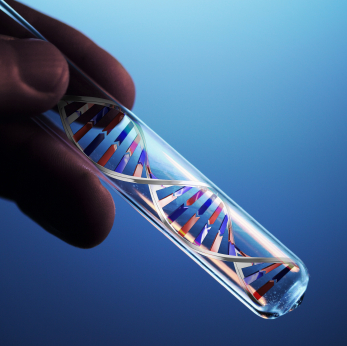Genetic Testing for and Inheritance of SMA
As prenatal genetic screening for SMA is not currently available, most people learn that they are carriers of SMA when they have a child born with the condition. Prenatal testing is usually offered to couples who know they are carriers of SMA for any subsequent pregnancies, usually by chorionic villus sampling (CVS) or amniocentesis, performed in the second trimester of pregnancy. As there are no treatments or cure available for SMA, if a foetus is found to be affected by SMA, a termination is usually offered. Only certain people are currently permitted to undergo testing on the NHS to see if they are carriers of SMA- these are usually people who are the blood relatives of a person with SMA, or the partner of someone with SMA, with whom they are hoping to have children.
The current consultation by the UK National Screening committee however, is considering the introduction of SMA screening for everyone in the population, regardless of whether they are related to someone with SMA. This would mean that people from the general population could learn, before they have children, or whilst they are currently pregnant, whether they are carriers of SMA. Estimates suggest that somewhere between 1 in 40 and 1 in 60 people in the UK population are carriers of SMA.
As SMA is recessively inherited, both parents need to be carriers of SMA in order for a child to be born with SMA. For two carrier parents, each pregnancy has a 25% chance (1 in 4) of being affected by SMA. Therefore if one parent is known to be a carrier, the other parent may want to be tested to establish the chance of the foetus having SMA. A diagnostic test of the foetus (through CVS or amniocentesis) is usually only offered on the NHS when it is already established that both parents are carriers of SMA.
If one of the parents has SMA themselves and their partner is a carrier of SMA, then their offspring has a 50% chance of inheriting SMA. Any children born to a person with SMA who do not inherit the condition, will be carriers of the condition.
Importantly for families living with SMA, the genetic testing technologies which are used to diagnose SMA, and also to identify carriers of SMA cannot accurately predict which type of SMA a child will inherit. Consequently, it is difficult to estimate the severity of the condition in advance of a child being born with it. This issue makes the question of screening for SMA far more complex as would-be parents undergoing screening for SMA cannot know beforehand whether the child will have type 1,2, 3 or an adult onset form of the condition- only whether or not the child has SMA.

